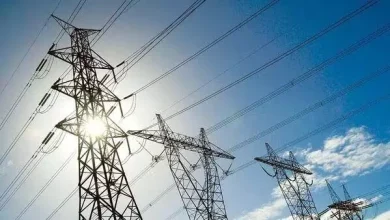Pressure to finalize Trump’s trade deal mounts two weeks early

Business Trade: Two weeks before President Donald Trump’s self-imposed deadline for reaching agreements with America’s major trading partners, some of the most closely watched negotiations aimed at forging agreements to avoid higher tariffs are struggling to cross the finish line.
There’s a lot at stake: By July 9, exporting countries without a bilateral agreement will face Trump’s so-called “liberation day” tariffs that are much higher than the current baseline 10% level applied to most countries.
Only the UK has achieved something on paper, though that agreement retained a 10% so-called reciprocal rate and left one of Britain’s pain points unresolved – the 25% steel duty. On a different track is China, which has a delicate truce with the US that continues until mid-August to give talks time to move forward.
Deadlines could be extended for countries seen by Washington as having productive discussions. Court challenges to Trump’s legal authority for tariffs have provided an additional element of uncertainty for companies that have spent the last 10 weeks either pushing through orders or hoping that his threats of higher import taxes are simply a negotiating tactic.
Here’s a breakdown of the status of the various negotiations:
EU
Bloomberg has reported that the best-case scenario is for an EU-US agreement on principles that would allow talks to continue beyond the initial July deadline. Trump complained about the EU’s talks last week, threatening to quit and impose tariffs unilaterally. The EU, which is seeking a mutually beneficial deal, will assess any final outcome and decide at that stage what level of asymmetry – if any – it is willing to accept or whether it will proceed with countermeasures to correct any imbalances.
India
Trade officials from India and the US are still keen to strike an interim deal before the deadline, but both sides remain adamant on some key issues, particularly agricultural goods. The US is demanding access to India’s markets for its genetically modified crops, which India has rejected, while New Delhi wants reciprocal tariffs as well as exemptions from sectoral tariffs. Indian Prime Minister Narendra Modi lost an opportunity to push the trade deal with Trump when the US leader left last week ahead of a Group of Seven meeting in Canada.
Vietnam
Communist Party chief To Lam is scheduled to lead a delegation of officials and business executives to the US, aiming to meet Trump and strike additional deals with US firms to help finalise an agreement. The country has offered to boost purchases of US products ranging from Boeing airplanes to agricultural goods to seal a deal. Bloomberg News previously reported that negotiators are close to a framework agreement under which Vietnam is pushing for tariffs in the range of 20% to 25%.
Japan
US auto tariffs appear to be the main obstacle to a deal between Washington and the government of Prime Minister Shigeru Ishiba, which is set to press ahead with talks. Despite three prior calls to discuss tariffs, Trump and Ishiba failed to reach an agreement at the Group of Seven leaders’ summit in Canada. Opposition leader Yoshihiko Noda said after a meeting with Ishiba that the US is most concerned about the auto trade deficit and that no consensus had been reached. The two sides are now trying to schedule the next round of high-level trade talks. The US is set to raise tariffs on Japan to 24%, in addition to existing duties of 25% on cars and 50% on steel and aluminum.
South Korea
South Korea has yet to make meaningful progress in trade talks. New Trade Minister Yoo Han-koo met US officials in Washington on June 23 with the aim of securing exemptions from tariffs, including those already imposed on cars and steel. This came after a planned meeting between President Lee Jae Myung, who took office earlier this month, and Trump at the G-7 summit was cancelled at the last minute as Trump left the event early amid rising tensions in the Middle East. South Korea risks a 25% tariff, which would put further pressure on its export-dependent industries already strained by regional tariffs.
Thailand
Thailand, which has been threatened with a 36% tariff, resumed its delayed talks with the US last week. Commerce Permanent Secretary Wuttikrai Leewiraphan said last Wednesday that Thailand’s proposals are good and there is a chance of bringing down tariffs to a 10% baseline. The finance minister said on Tuesday that the official proposal was submitted to Washington last week and detailed negotiations are ongoing.





